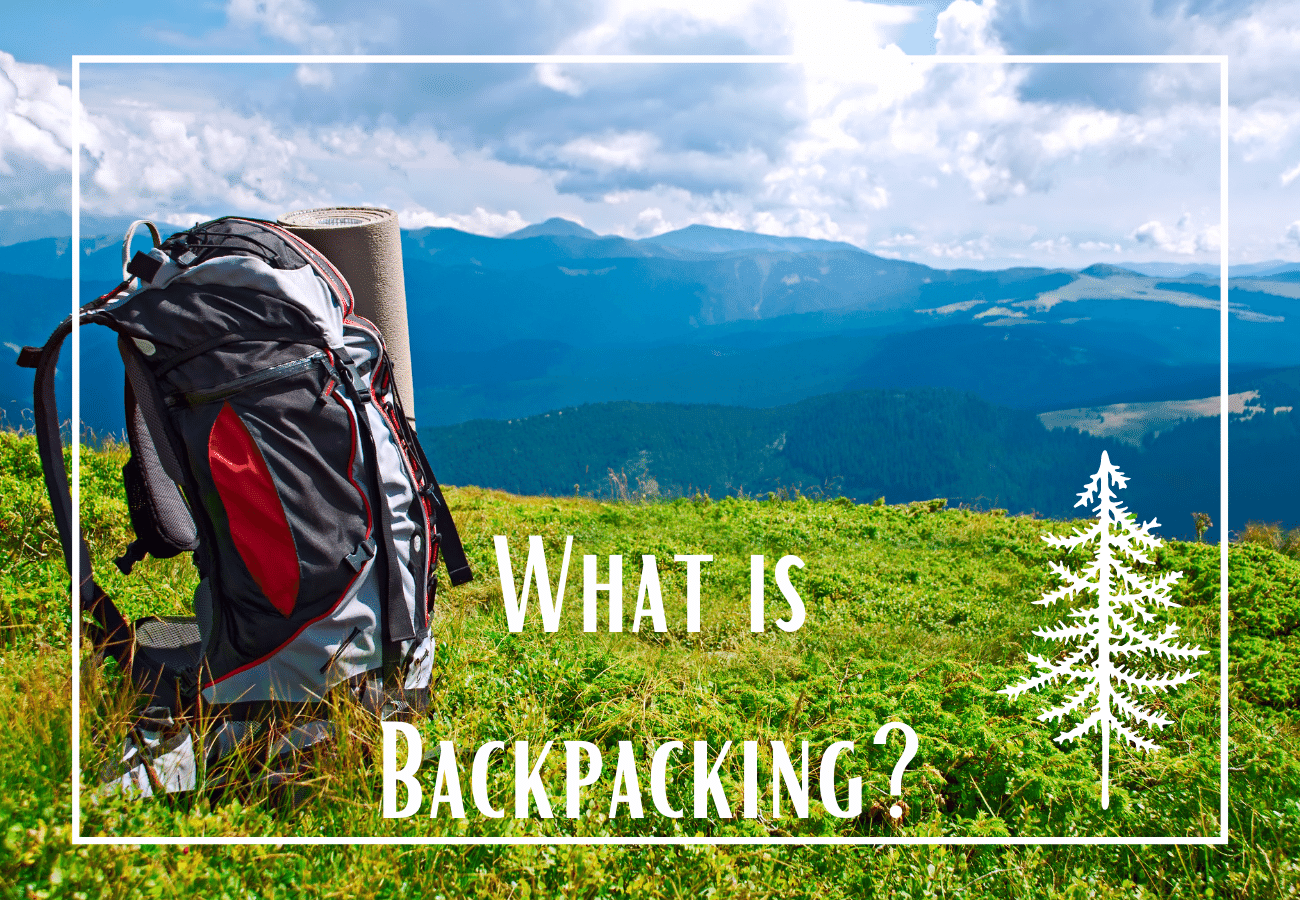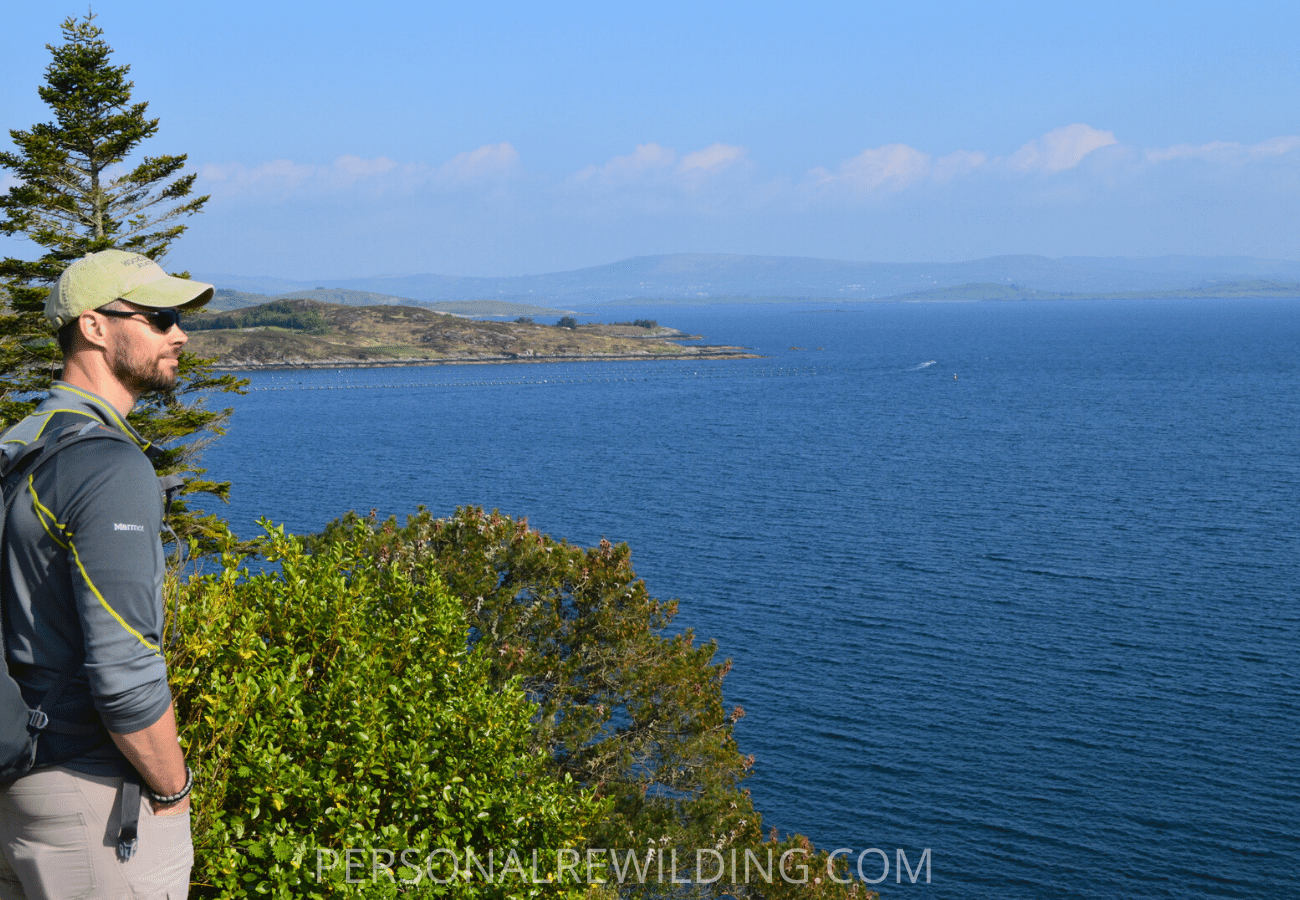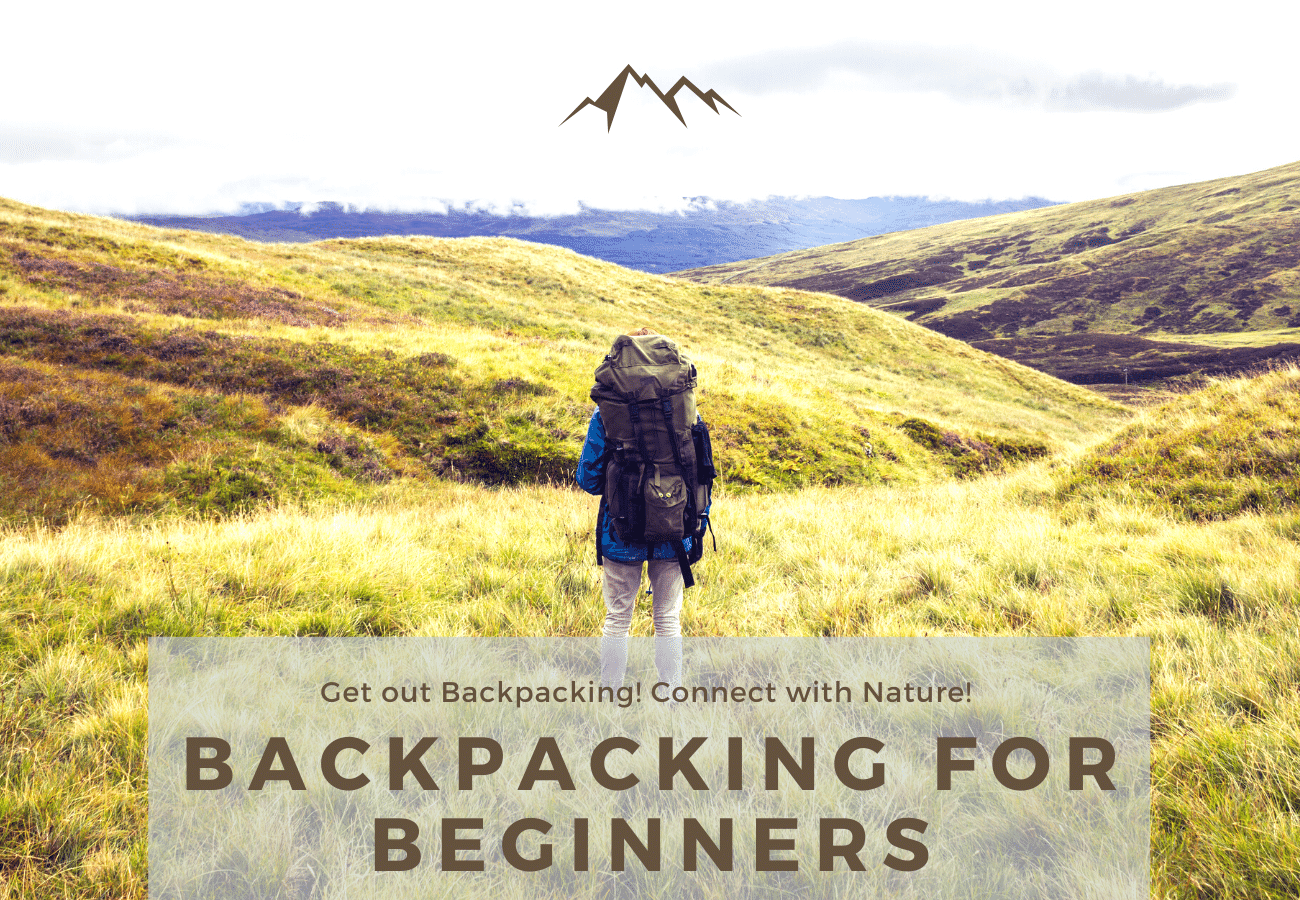- Home
- Connect w/ Nature
- What Is Backpacking
What is Backpacking?
(And Why Should You Do It?)
What is backpacking? And how is it different from walking or hiking in nature?
In a sense, these three activities are related, but with some distinct differences. All involve “walking”, exploration of the landscape on foot, but hiking usually indicates a wilder experience – unpaved trails and more challenging terrain.
Backpacking is essentially a multi-day (or week...or month!) combination of hiking and camping, but as the name indicates, a backpacker carries all their necessary food, water, gear, personal items, and shelter along with them in a pack.
A hiker may carry a small day pack with a few limited essentials. A backpacker carries a larger pack, often consisting of an internal frame to help distribute the weight across the backpacker’s body.
Backpacking typically includes at least one overnight, but may include – in the case of long-distance thru hikes – months of living from a pack. This total immersion in nature and self-reliance is a powerful way to connect with nature and the deeper, less technology-dependent parts of ourselves.
It allows you to get away from the established campgrounds and tourist crowds and see places that aren’t accessible in any other way. Many wilderness areas and National Park interiors are not accessible by road, but can only be seen and experienced by backpacking in.
“Few places in this world are more dangerous than home. Fear not, therefore, to try the mountain-passes. They will kill care, save you from deadly apathy, set you free, and call forth every faculty into vigorous, enthusiastic action.”
-John Muir, The Mountains of California
What is Backpacking: Affordable Travel
One of the great benefits of backpacking is that it can be budget friendly. Backpackers who set out to explore, carry in their own food, and camp in the wilderness have very little overhead cost to consider. There are initial costs such as pack, clothing, gear, food supplies, and transportation to the start of the trail, but standard tourist costs such as hotels, rental cars, restaurants, and entry fees can be mostly avoided.
There are many variations of backpacking. Some backpackers carry essential supplies but travel from hotel to hotel. Others from hostel to hostel. The hostel industry – especially throughout Europe – grew up around the legions of backpackers that routinely explore European cities and landscapes.
Offering affordable, bare-bones accommodations, hostels are perfect for self-sufficient backpackers with all the basics on their backs.
The great majority of backpackers, however, camp or utilize shelters dedicated to that purpose – such as those found on long-range trails such as the Appalachian Trail. This means that lodging is free (or nearly free).
There are a variety of outdoor outlets that offer freeze-dried or dehydrated foods that can be packed for the most efficient use of pack space and weight, but there are also many, many sites online (such as Backpacking Chef) that offer recipes and ideas for tasty trail meals prepared from a few simple raw materials.
What is Backpacking: Adventure & Self-Reliance
When it comes to connecting with nature and shaking the dust off our modern, connected lives, there are few activities as impactful as backpacking. Unlike a simple walk, backpackers must immerse themselves in nature and become almost entirely self-reliant.
That self-reliance makes us more attuned to the world around us. It helps us to realize that we are not separate from nature, but a part of it, and also subject to its whims, challenges, and beauty.
“Leave home, leave the country, leave the familiar. Only then can routine experience—buying bread, eating vegetables, even saying hello—become new all over again.”
-Anthony Doerr
Backpacking is never easy. If you’re looking for a beach holiday or an opportunity to lay back and relax, a backpacking trip does not fit the bill. Backpacking is often grueling exercise, hours of walking over various terrains, eating and drinking only what you’ve carried with you or found along the way. The weather often varies and leaves you drenched in rain or sweat. Insects can be nuisances.
It’s not a luxurious existence.
Backpacking also delivers tremendous rewards. Unbelievable vistas, magical moments in the presence of wildlife, absolute peace and quiet, challenging climbs, sunrises and sunsets, and experiences that remain in the memory forever.
More than that, it also provides us with a sense of growth and accomplishment we’ll never get from a beach-side resort or a five-star hotel. It requires careful preparation, constant learning, the ability to be flexible and resourceful, and the willingness to reach deep into ourselves to overcome obstacles.
At the end of the day, you’re left with a feeling of having grown, physically and spiritually. Things that are difficult in the moment are always those that leave the biggest marks on us. Memories made while backpacking will exist long after more sedentary experiences have faded.
What is Backpacking: Some Beginner's Tips
Here are a few tips for the beginning backpacker, or for those who want to know how to prepare:
1.) Start by buying (or borrowing or renting) the supplies you’ll need. A more complete list can be found here.
2.) Start small. If you’ve never backpacked before, consider starting with a simple overnight trip fairly close to home. Rome wasn’t built in a day, and there are many things for the beginning backpacker to learn by experience before they venture into the wider wilderness.
3.) Consider going with a more experienced friend or guide. If you have a friend or family member with backpacking experience, consider asking them along on a short backpacking excursion. You can learn a lot, and save yourself some trouble, by bringing experience along with you.
4.) Choose a well-traveled trail or path, especially for your first experiences. Find trails that are well-marked and frequently traveled so you’re both less likely to get lost, and more likely to have help close to hand if needed.
5.) Ensure you carry both enough food and water for your time in the wild as well as a secondary way to purify water. For trips beyond a day or two there is no way to carry enough water with you, so a water purification method is critical. Plan your meals out well ahead of time and take at least one extra day of food.
6.) Ensure you have a backup means of navigation…and understand how to use it. Even in today’s technology-heavy times, a simple tool like a compass – and the ability to use one – is invaluable. Technology, and the batteries and signals they rely on, are notoriously fickle, especially in the wilderness.
7.) Prepare physically. Physical preparation for a backpacking trip is essential. Even if you customarily hike or are in otherwise good physical condition, you must prepare your body for both the physical strain of hiking as well as the strain of carrying a heavy backpack full of gear. At least a month before you leave, take several long day hikes with a fully loaded pack to help your muscles and body adjust to the changes.
8.) Always leave a copy of your plan with a friend or family member, including details about your scheduled departure and arrival times and expected paths.
9.) Stock your first aid kit. A simple first-aid kit is critical on a backpacking journey – something as simple as a blister can easily become a very big deal on the trail without proper treatment.





